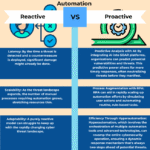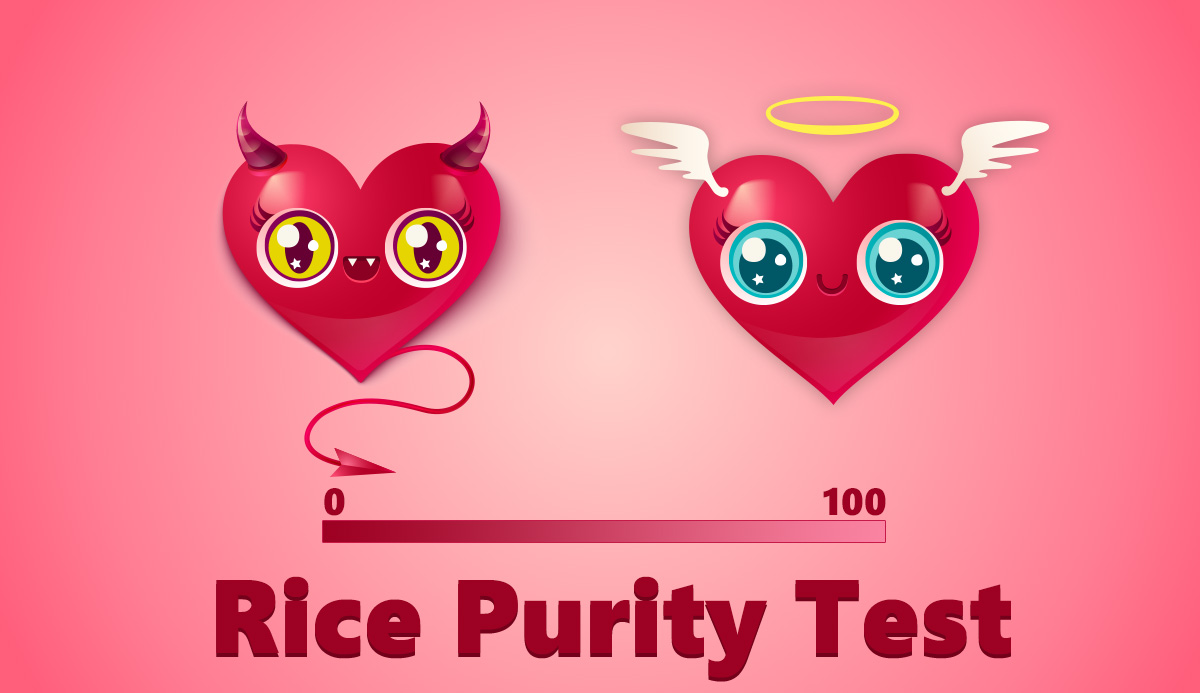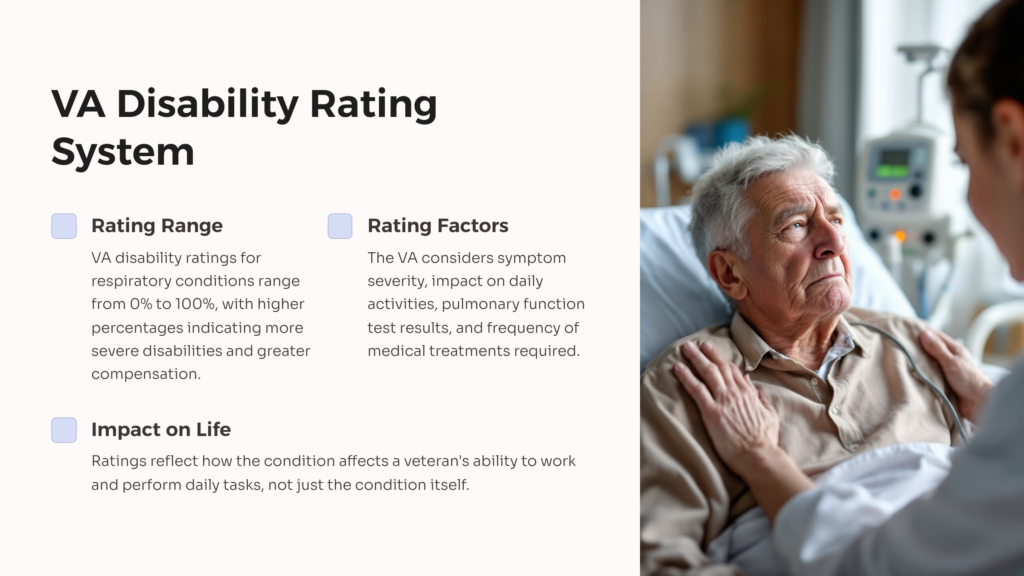The Rice Purity Test is a self-graded survey that originated at Rice University in Houston, Texas. It’s a questionnaire that asks about different behaviors and experiences, and the respondents must answer honestly whether or not they’ve participated in each activity. The questions cover a range of topics, including sexual behavior, drug and alcohol use, academic honesty, and criminal activity.
The Rice Purity Test is typically taken by college students as a way to measure their “purity” or lack of experience in certain areas. It’s not a scientifically validated test, but rather a fun and informal way for young people to compare their experiences and see how they stack up against their peers.
To take the Rice Purity Test, you can find various versions of the test online. Some versions have up to 100 questions, while others have fewer. Once you start the test, you’ll be asked a series of “yes” or “no” questions about various experiences and behaviors. After you’ve answered all the questions, you’ll receive a score that reflects your level of “purity” according to the test’s criteria.
It’s important to note that the Rice Purity Test is not an accurate measure of a person’s character or worth. It’s simply a way to have some fun and compare experiences with friends. It’s also important to remember that the test should not be taken too seriously and should not be used to shame or judge others.
How can I play the Rice purity test?
- Go to one of the websites that host the Rice Purity Test.
- Read the instructions and the disclaimer carefully.
- Click on the “Start” or “Take the Test” button to begin the test.
- Answer each question honestly by selecting “yes” or “no”. If you’re unsure about a question, you can skip it or make your best guess.
- Once you’ve answered all the questions, click on the “Submit” or “Get Results” button.
- You will receive a score that reflects your level of “purity” according to the test’s criteria.
It’s important to remember that the Rice Purity Test is not a scientifically validated test and should be taken with a grain of salt. It’s meant to be a fun and informal way to compare experiences with friends, but it should not be used to shame or judge others.
What are people saying about the Rice test on social media?
What Is A Good Score Of Rice Purity Test?
That being said, it’s important to remember that the Rice Purity Test should not be taken too seriously and should not be used to shame or judge others. Everyone’s experiences are different, and the test does not provide an accurate or comprehensive assessment of a person’s character or worth. The most important thing is to be honest in your responses and not to compare yourself too harshly to others.
Pros Of Rice Purity Test
- Promoting self-reflection: The test asks a series of questions about a person’s experiences and behaviors, which can encourage them to reflect on their past actions and consider how they might want to change their behavior in the future.
- Encouraging honesty: To get an accurate score on the Rice Purity Test, a person needs to answer each question honestly, which can be a good exercise in practicing honesty and self-awareness.
- Facilitating discussion: The Rice Purity Test can provide a starting point for discussions about different experiences and behaviors among friends or within a group.
- Helping to dispel myths and misconceptions: The test includes questions about a range of topics, including sexual behavior and drug use, which can help to dispel myths and misconceptions that people may have.
However, it’s important to remember that the Rice Purity Test is not a scientific or objective measure of a person’s worth or character. The test should not be taken too seriously, and it should not be used to shame or judge others. Ultimately, the test is meant to be a fun and informal way for people to compare experiences with their peers.
Promoting self-reflection:
Additionally, the test can prompt people to reflect on their values and priorities. For example, if someone scores high on the test and has avoided engaging in certain behaviors, they may feel proud of their choices and feel that those values align with their personal beliefs. On the other hand, if someone scores lower on the test and has engaged in a wider range of behaviors, they may use the results as an opportunity to consider whether those behaviors align with their personal values and goals.
Overall, self-reflection is an important part of personal growth and development, and the Rice Purity Test can be one tool that people use to encourage that process.
Encouraging honesty:
Some people may find it difficult to answer certain questions truthfully, especially if they feel embarrassed or ashamed about their past behaviors. However, by taking the test and being honest about their experiences, people can practice being truthful with themselves and others. This can help to build trust and integrity, both of which are important qualities for personal and professional growth.
It’s worth noting, however, that the Rice Purity Test is not a scientifically validated test and should be taken with a grain of salt. The test should not be used to shame or judge others, and everyone’s experiences are different. Ultimately, the most important thing is to be honest with yourself and others, whether or not you choose to take the Rice Purity Test.
Facilitating discussion:
For example, people may compare their scores and discuss their answers to different questions, which can help to break the ice and encourage deeper conversations about personal experiences and beliefs. Additionally, the test can help to reduce stigma and shame around certain topics, such as sexual behavior or drug use, by providing a platform for open and honest discussion.
By facilitating discussion, the Rice Purity Test can help people to feel more connected to their peers and to build stronger relationships based on honesty and openness. However, it’s important to remember that not everyone may feel comfortable discussing their answers to the test, and some people may prefer to keep their personal experiences private. It’s important to respect others’ boundaries and to use the test as a starting point for conversations only if everyone involved feels comfortable and willing to participate.
Helping to dispel myths and misconceptions:
For example, if someone scores lower on the test and has engaged in a wider range of behaviors, it can challenge the idea that engaging in certain behaviors is inherently “bad” or morally wrong. Similarly, if someone scores higher on the test and has avoided certain behaviors, it can challenge the idea that engaging in those behaviors is necessary or expected.
By promoting accurate information and reducing stigma, the Rice Purity Test can help people to make informed decisions about their behavior and to feel more comfortable discussing certain topics. However, it’s important to remember that the test should not be taken as a definitive measure of a person’s worth or character, and that everyone’s experiences and choices are different.
Cons Of Rice Purity Test
- Potential for shame or judgment: Some people may feel shame or judgment based on their score, especially if they have engaged in certain behaviors that are stigmatized or taboo. This can lead to negative feelings and a sense of being ostracized from their peers.
- Limited scope: The Rice Purity Test covers a specific set of behaviors and experiences, and may not accurately reflect a person’s full range of experiences or behaviors. Some people may feel that the test is too narrow in scope to be a useful tool for self-reflection.
- Inaccuracy: The Rice Purity Test is not a scientifically validated test and may not provide accurate results. Some questions may be subjective, and the test does not account for the context or circumstances surrounding a person’s experiences or behaviors.
- Pressure to conform: Some people may feel pressure to conform to certain expectations or standards based on their score. For example, if someone scores lower on the test, they may feel pressure to engage in certain behaviors in order to fit in with their peers.
- Trivialization of serious issues: Some people may feel that the test trivializes serious issues such as sexual assault or drug addiction by asking questions about them in a lighthearted way.
It’s important to remember that the Rice Purity Test is just one tool for self-reflection, and that everyone’s experiences and choices are different. It’s important to approach the test with an open mind and to use it as a starting point for deeper reflection and discussion, rather than as a definitive measure of a person’s worth or character.
Potential for shame or judgment:
For example, if someone scores low on the test and has engaged in a wider range of behaviors, they may feel ashamed or judged by their peers who scored higher. On the other hand, if someone scores high on the test and has avoided certain behaviors, they may be viewed as “prudish” or out of touch with their peers.
Feeling ashamed or judged can be a negative experience that can impact a person’s self-esteem and mental health. It’s important to remember that everyone’s experiences and choices are different, and that no one should be shamed or judged for their past behaviors or experiences.
While the Rice Purity Test can be a useful tool for self-reflection and discussion, it’s important to approach it with empathy and respect for others. The test should not be used as a tool to shame or judge others, and everyone should feel comfortable and safe discussing their experiences without fear of stigma or judgment.
Limited scope:
For example, the test may not include questions about certain cultural or social experiences that are relevant to some individuals. Additionally, the test does not account for the context or circumstances surrounding a person’s experiences or behaviors. For instance, a person may have engaged in a behavior due to peer pressure or coercion, but the test does not differentiate between voluntary and involuntary experiences.
It’s important to remember that the Rice Purity Test is just one tool for self-reflection, and that everyone’s experiences and choices are different. It’s important to approach the test with an open mind and to use it as a starting point for deeper reflection and discussion, rather than as a definitive measure of a person’s worth or character.
Inaccuracy:
For example, the test asks about specific behaviors, but does not account for the frequency, intensity, or context of those behaviors. Additionally, the test is self-reported and relies on a person’s memory and honesty, which may not always be reliable.
It’s important to remember that the Rice Purity Test is just one tool for self-reflection, and that its results may not be entirely accurate. It’s important to approach the test with an open mind and to use it as a starting point for deeper reflection and discussion, rather than as a definitive measure of a person’s worth or character.
Pressure to conform:
For example, if someone scores low on the test and has engaged in a wider range of behaviors, they may feel pressure to conform to their peers who scored higher. Conversely, if someone scores high on the test and has avoided certain behaviors, they may feel pressure to conform to their peers who scored lower.
Feeling pressured to conform to a particular standard can be stressful and may cause a person to engage in behaviors or make decisions that are not authentic to their true selves. It’s important to remember that everyone’s experiences and choices are different, and that there is no “right” or “wrong” way to live one’s life.
While the Rice Purity Test can be a useful tool for self-reflection and discussion, it’s important to approach it with an open mind and to resist the pressure to conform to a particular standard or set of expectations. The test should not be used as a tool to judge or shame others, and everyone should feel comfortable and safe discussing their experiences without fear of stigma or judgment.
Trivialization of serious issues:
For example, the test includes questions about drug use, sexual assault, and other forms of violence, which are serious issues that should not be trivialized or reduced to a score on a test. The test may also be insensitive to individuals who have experienced trauma or abuse related to the behaviors and experiences covered by the test.
It’s important to remember that the Rice Purity Test is just one tool for self-reflection, and that it should not be used to trivialize or dismiss serious issues. Instead, it’s important to approach the test with empathy and respect for others, and to use it as a starting point for deeper reflection and discussion about the complex issues and experiences covered by the test.
Additionally, if a person has experienced trauma or abuse related to the behaviors and experiences covered by the test, it may be more appropriate for them to seek professional help from a therapist or other mental health professional.
Conclusion:
It’s important to approach the test with an open mind and to use it as a starting point for deeper reflection and discussion, rather than as a definitive measure of a person’s worth or character. The test should not be used to judge or shame others, and everyone should feel comfortable and safe discussing their experiences without fear of stigma or judgment.
Additionally, if a person has experienced trauma or abuse related to the behaviors and experiences covered by the test, it may be more appropriate for them to seek professional help from a therapist or other mental health professional.
Overall, the Rice Purity Test can be a helpful tool for self-reflection and discussion, but it’s important to use it with empathy, respect, and an understanding of its limitations.











